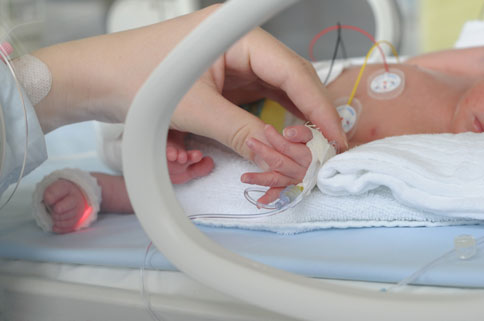Many women who serve in the military suffer from posttraumatic stress disorder (PTSD). It can also occur as a result of a traumatic experience, such as rape or a terrorist attack, in civilian life. A number of women who suffer from PTSD become pregnant. A new study examined the effect of PTSD on pregnancy.
The study authors note that preterm birth is a leading cause of infant morbidity (adverse health conditions) and mortality in the US; 12% of deliveries are preterm, and approximately half occur spontaneously rather than a result of a medical indication. A number of risk factors for spontaneous preterm birth have been positively identified, including demographic characteristics, substance abuse, and multiple pregnancies, the cause remains poorly understood. Over the past two decades, little progress has been made in reducing the incidence of preterm birth. An increasing number of studies have suggested a role for psychosocial factors such as maternal stress and depression; however, the effect of PTSD remains unclear.
PTSD is a collection of disruptive symptoms that arise from a traumatic experience; its prevalence varies significantly between populations based on exposure. Surveys conducted in the US have found that women are affected by the disorder at higher rates than men, and estimate lifetime prevalence of PTSD among females to be 10–14%.
The investigators explain that PTSD could affect preterm delivery directly through biological processes or indirectly through risky health behaviors and poor self-care (e.g., receiving prenatal care, nutrition, and sleep). Past studies have been limited by an inadequate number of included patients size, disparities in diagnostic criteria, and generalizability factors.
In view of the foregoing, the researchers examined whether PTSD is associated with spontaneous preterm birth by evaluating deliveries covered by the Veterans Health Administration. With standardized mandatory PTSD screening, a high PTSD prevalence (13–21% in reproductive-aged women), and centralized national data, the Veterans Health Administration provides an ideal setting in which to examine the relationship between PTSD and preterm birth in a large group of women.
The researchers identified antenatal (pre-pregnancy) PTSD status and spontaneous preterm delivery in 16,334 deliveries covered by the Veterans Health Administration. They divided mothers with PTSD into those with diagnoses present the year before delivery (active PTSD) and those only with earlier diagnoses (historical PTSD). They identified spontaneous preterm birth and possible confounders (factors that could skew the data) including age, race, military deployment, twins, hypertension, substance abuse, depression, and results of military sexual trauma screening. The data was subjected to statistical analysis.
The investigators found that of 16,334 births, 3,049 (19%) were to mothers with PTSD diagnoses, among whom 1,921 (12%) had active PTSD. Spontaneous preterm delivery was higher in those with active PTSD (9.2%; 176 women) than those with historical (8.0%; 90 women) or no PTSD (7.4%; 982women) before adjustment. The relationship between PTSD and preterm birth persisted, when adjusting for confounders, only among women with active PTSD. Analyses adjusting for psychiatric and medical diagnoses revealed the association with active PTSD to be significant.
The authors concluded that among this large group of women, which contained a high number of PTSD-affected pregnancies, mothers with active PTSD were significantly more likely to suffer spontaneous preterm birth: two excess preterm births per 100 deliveries. They suggested that PTSD’s health effects may extend, via birth outcomes, into the next generation.















